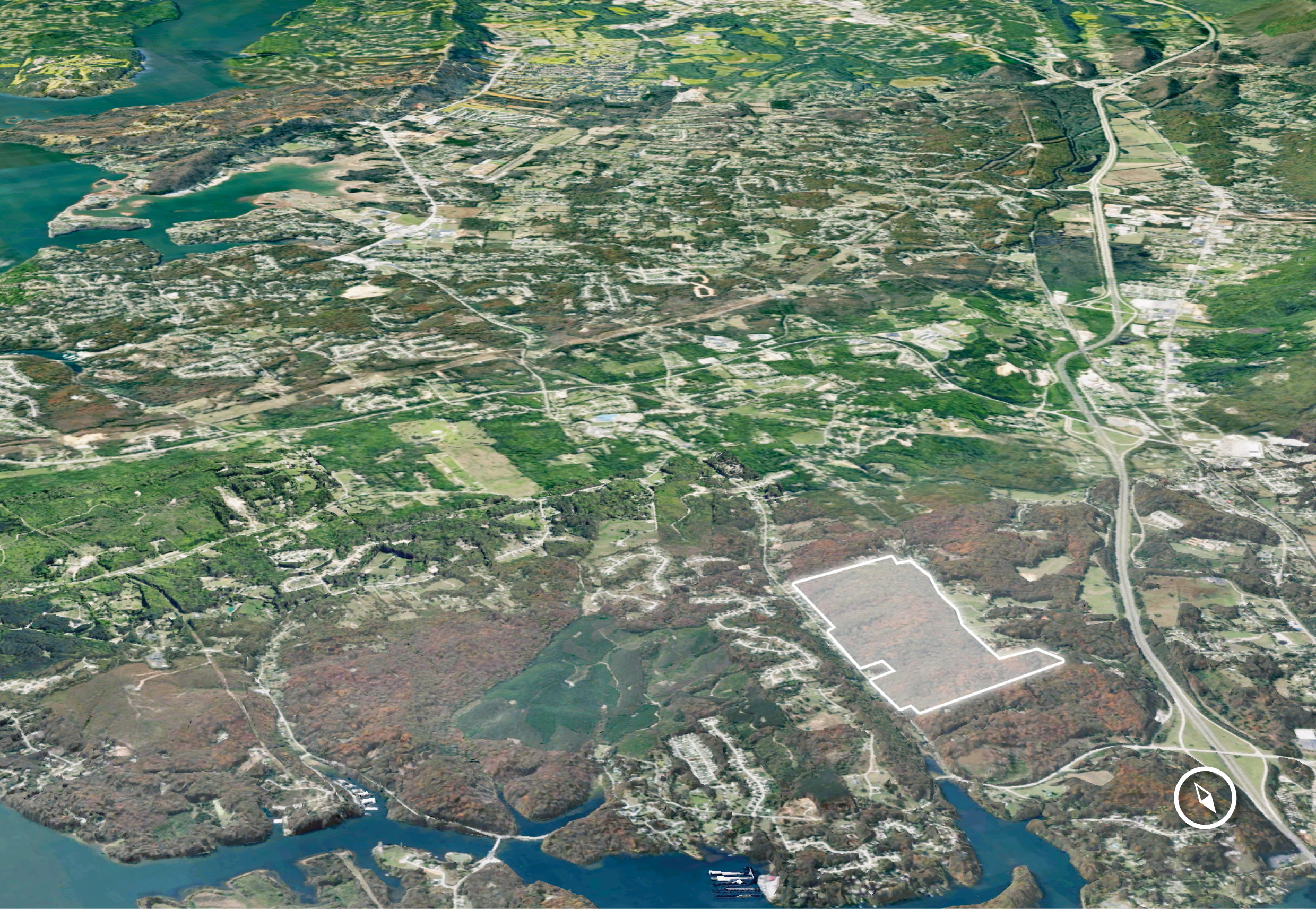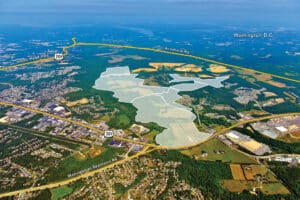Walton Global: A history and review
If you have any questions or want to invest as an expat or high-net-worth individual, you can email me (advice@adamfayed.com) or use these contact options.
We can offer Walton, and indeed alternatives to Walton which might be more suitable for your situation.
Table of Contents
Introduction
If you’re interested in investing in real estate in North America, then you might have heard of the real estate management company Walton Global, which has more than 91,000 acres of land under ownership and management in the United States and Canada.
In this article, we will highlight the company’s assets, recent performance, history, and evaluate whether it is a good investment in the year 2023.

What is Walton Global?
Founded in 1979, Walton Global is a real estate investment company that has been around for over four decades.
Walton presently owns and manages more over 91,000 acres of land across North America, including more than 79,000 acres in the southern United States, which is home to many of the fastest growing regions and metropolitan areas.
These assets include investments in 28 identified growth markets in North America, with the majority located in the Sun Belt region of the United States.
Walton Global’s primary business is the emphasis on creating value on pre-developed that is in an expected growth area.
Choosing the ideal piece of land for acquisition, syndicating it through the investment structures best suited for our many worldwide sales channels, managing the land during its hold time, and finally selling the land for a predicted overall profit are all parts of Walton’s investment strategy.
The company currently oversees real estate assets worth US$3.6 billion on behalf of investors from over 83 different nations.
They own commercial, industrial, and residential properties, among which include developments like shopping centers, logistics facilities, office buildings and luxury residential condominiums.
Walton Global’s portfolio of real estate is spread across 28 major North American markets, comprised of more than 150 master-planned communities with multiple uses.
The company has offices in six countries: United States, Canada, China, Taiwan, Singapore, and the United Arab Emirates.
History
Founded in Calgary, Alberta in Canada by the Doherty Family under the name of Quance Enterprises in 1979, Walton Global’s first pre-development land project is a 14-acre parcel in Alberta. This was syndicated to individual investors in 1986.
In 1992, the company established Asia operations by opening its first office in Hong Kong, eventually expanding to Singapore four years later in 1996.
In 1998, Walton Global began its pre-development land exit business with Panorama Estates in Calgary, in what it calls an “extremely successful project with strong returns to investors.
By the turn of the millennium in 2003, Walton Global had its first development project, Shepard Land Industrial, a 1,494-acre industrial development in southeast Calgary in Canada.
In 2007, one year before the global financial crisis, the company stepped into the United States, establishing offices with a strategy focused on acquiring and syndicating land assets in the path of growth in major U.S. markets.
So far, Walton Global has invested a significant amount of money on buying land in Canada. In order to minimize the impact of the economic slump in the United States, the company moved its attention away from Canada in 2007 and has since acquired more than 81,000 acres of land.
From there until 2013, Walton Global made a CAD 450 million joint venture with an insurance company to develop three communities in Calgary and Edmonton, Canada. Meanwhile, it announced in 2012 that it has distributed USD 1 billion to its investors.
The real estate firm went on to partner with more companies to acquire and develop land across North America, building up its portfolio. It also established Chinese and Middle Eastern offices in 2018 and 2019. Taiwan offices followed not long afterwards in 2020.
In 2021, Walton Global announced that it has distributed USD 2 billion to its investors as a result of its business strategy.
The company’s latest announcement was of the selling of 80 acres in Maryland’s Prince George’s County to D.R. Horton, to develop the Spring Hills master-planned development.
Understanding Walton Global’s Investment Strategy
Walton Global stands out in the real estate investment sector with its unique approach, primarily focusing on pre-development land in regions with high growth potential.
The company meticulously selects land parcels, ensuring they are in areas poised for significant appreciation in value. This strategy not only demonstrates Walton Global’s commitment to delivering value to its investors but also highlights its expertise in identifying lucrative investment opportunities.
Proactive Land Selection and Growth Area Focus
Strategic Land Acquisition
Walton Global excels in acquiring land with high growth potential. The company conducts thorough research and analysis to identify parcels in regions poised for development and appreciation. This proactive approach ensures that Walton Global stays ahead of market trends, positioning its investments for success.
Commitment to Growth Areas
The company’s focus on growth areas is a testament to its commitment to delivering substantial returns to its investors. Walton Global understands the importance of location in real estate investment and strategically chooses areas that are on the cusp of development and expansion.
Global Investment Structures and Asset Management
Catering to a Global Audience
Walton Global’s investment structures are designed to cater to a diverse global audience. The company has a strong presence in various markets, showcasing its ability to manage assets effectively across different regions.
This global reach ensures that Walton Global can tap into a wide range of investment opportunities, further diversifying its portfolio.
Effective Asset Management
The company takes pride in its asset management capabilities, ensuring that each investment aligns with its overall financial goals.
Walton Global’s team of experts works diligently to manage and optimize its assets, ensuring they perform at their best. This commitment to effective asset management is a key component of the company’s success.
Transparency and Investor Confidence
Clear Communication of Investment Philosophy
Walton Global values transparency and ensures that its investors fully understand the company’s investment philosophy. The firm is open about its intentions and methods, providing investors with the information they need to make informed decisions.
Building Investor Trust
The company’s transparent approach builds trust with its investors. Walton Global understands the importance of investor confidence and works tirelessly to maintain and strengthen this trust.
The firm’s commitment to transparency and clear communication is a crucial factor in building and maintaining strong investor relationships.
What should I know about investing in Walton Global?
Walton Global is a real estate investment firm that focuses on purchasing undervalued properties and selling them for a profit in the future.
They like to buy properties that they deem are undervalued but have the potential for growth, and are in safe and secure, fairly populous areas.
According to the company’s forecasts, consistent long-term growth in the U.S. economy will be fueled by rises in the population, formation of new households, and employment.
To meet the housing needs of a growing population, this will lead to a considerable increase in demand for land that is ready for construction and situated in the growth corridors of major U.S. areas. This is the core that Walton Global bases its business on.
The company leverages its capabilities to selectively buy pre-development land parcels relevant to this investment profile, including an extensive land research process, a debt-free technique of acquiring pre-development land assets, and its decades of experience.
The investment strategy employed by Walton is one that believes in buying assets that have a potential for growth, and then resell these assets at higher prices later on down the line, in essence borrowing against future earnings.
As an investor, this strategy can allow you to make money while waiting out any economic downturns or recessions by holding onto their investments until things start looking up again before selling off their holdings when things improve again.
The exit and monetization of real estate assets to significant U.S. national and regional homebuilders and developers are also essential components of Walton’s investment strategy, in addition to the identification and acquisition of pre-development land assets.
In order to monetize pre-development land holdings across North America, Walton’s asset management methodology focuses on establishing agreements with best-in-class homebuilders and developers.
By taking a long-term approach to land planning and entitlements, Walton Global works with homebuilders and developers to create sustainable communities that are resilient and long-lasting, with a goal of creating hometowns for present and future generations.
Walton Global’s portfolio of investments are through three property segments: commercial properties, industrial and logistics properties, and residential developments.
Retail or commercial properties include shopping centers such as malls, outlet stores and supercenters; industrial and logistics properties include distribution centers and warehouses, while residential projects include townships, master-planned communities, and condominiums.
Walton additionally has claimed that it follows an environmental, social and governance (ESG) program that is vital to its business practice and forms a primary obligation to the company, its business partners, investors, and employees.
The business has committed to pursuing and creating a comprehensive strategy that tackles Walton’s environmental and societal implications. The business acknowledges the need to adopt sustainability as a company-wide endeavor.
To this, Walton Global said, “Throughout our history, Walton has considered how communities are built, but more importantly, the people who live in them. This year, we are formalizing a program based on ESG principles in order to continue on a sustainable path toward an equitable future.”
“As a part of the development process, we are reviewing our past efforts as well as our current operational policies and procedures to create a program that will factor in goals, action, accountability and a thorough reporting process. The foundation of our program is a value-based approach that is focused on a balance between environmental, social, and economic prosperity.”
Walton pledges to announce more details about these developments in the coming months.

Financial Performance and Asset Management
Walton Global stands tall as a leader in asset management, skillfully overseeing a portfolio that showcases its financial prowess and strategic foresight.
The company expertly manages real estate assets worth billions, demonstrating its capacity to handle large-scale investments with precision and efficiency.
Strategic Asset Allocation and Diversification
Commercial and Residential Investments
The company actively invests in both commercial and residential real estate, balancing its portfolio to reflect market trends and opportunities.
Walton Global’s investments in commercial real estate include shopping centers and office buildings, while its residential investments cover a range of properties from luxury condominiums to master-planned communities.
Geographic Diversification
Walton Global’s portfolio extends across major North American markets, showcasing its ability to identify and capitalize on opportunities in different regions.
This geographic diversification plays a crucial role in the company’s risk management strategy, ensuring that its investments are not overly reliant on the performance of a single market.
Robust Financial Performance
Track Record of Success
Walton Global boasts a track record of numerous successful investments, demonstrating its ability to navigate the complexities of the real estate market. The company’s strategic planning and expert asset management have resulted in a portfolio that consistently generates value for its investors.
Commitment to Financial Goals
Walton Global aligns each investment with its overarching financial objectives, ensuring a cohesive strategy that maximizes returns while minimizing risk. The company’s unwavering commitment to its financial goals is evident in its disciplined approach to asset management.
Expertise in Asset Management
Proactive Management Approach
Walton Global adopts a proactive approach to asset management, continuously monitoring its investments and making adjustments as necessary. This hands-on management style ensures that the company stays ahead of market trends, positioning its portfolio for success.
Focus on Long-Term Value
Walton Global’s asset management strategy centers on creating long-term value for its investors. The company takes a forward-thinking approach, investing in properties with strong growth potential and working diligently to enhance the value of its assets over time.
Risks and Considerations in Real Estate Investment
Investing in real estate, particularly with Walton Global, requires a thorough understanding of the potential risks involved. The company’s focus on pre-development land, while lucrative, carries inherent risks that investors must consider.

The Inherent Risks of Pre-Development Land Investment
Market Volatility and Land Values
Walton Global specializes in pre-development land, a sector known for its potential high returns.
However, this area of real estate also experiences market volatility. Land values can fluctuate based on economic conditions, zoning laws, and market demand. Walton Global actively monitors these factors, ensuring that investors receive up-to-date information to make informed decisions.
Regulatory and Zoning Changes
Investments in pre-development land with Walton Global may face risks from regulatory and zoning changes.
Local governments may alter zoning laws, impacting the potential development and value of the land. Walton Global navigates these complexities, advocating for its investors and adjusting strategies as necessary to mitigate risks.
Walton Global’s Proactive Risk Management
Transparency and Investor Education
Walton Global prioritizes transparency, providing investors with comprehensive information about potential risks.
The company educates its investors, ensuring they understand the nuances of pre-development land investment. This education empowers investors, allowing them to make decisions that align with their financial goals and risk tolerance.
Expertise in Navigating Complexities
The team at Walton Global brings a wealth of experience in real estate, particularly in managing the risks associated with pre-development land. The company leverages this expertise to navigate the complexities of real estate investment, ensuring that investors’ interests remain protected.
Making Informed Decisions with Walton Global
Access to Industry Insights
Investors with Walton Global gain access to a trove of industry insights and expertise. The company provides valuable resources, helping investors understand the market dynamics and potential risks of their investments. This access to information is crucial in making informed decisions.
A Partner in Your Investment Journey
Choosing to invest with Walton Global means having a partner committed to your financial success. The company works diligently to identify and mitigate potential risks, ensuring that investors have the support they need throughout their investment journey.
Walton Global’s Role in the Real Estate Market
Walton Global has firmly established itself as a major influencer in the real estate sector, consistently shaping trends and contributing significantly to the industry’s growth.
The company boasts an extensive portfolio and a strong global presence, highlighting its substantial impact on the market. Walton Global’s strategic investments across various regions reflect its commitment to being a key player in the industry, ensuring it has a hand in shaping the real estate landscape.
A Key Player with Global Impact
Walton Global has firmly established itself as a major influencer in the real estate sector, consistently shaping trends and contributing significantly to the industry’s growth.
The company boasts an extensive portfolio and a strong global presence, highlighting its substantial impact on the market.
Walton Global’s strategic investments across various regions reflect its commitment to being a key player in the industry, ensuring it has a hand in shaping the real estate landscape.
Market Trends and Strategic Investments
Walton Global excels at identifying and capitalizing on market trends, showcasing its market expertise. The company ensures that its investments align with both current and future market conditions, demonstrating a forward-thinking approach.
This strategic alignment ensures that Walton Global stays ahead of industry shifts, positioning its investments for success.
Aligning Investments with Market Dynamics
The company actively monitors market dynamics, adjusting its investment strategies to ensure they remain relevant. Walton Global’s agility in responding to market changes is a testament to its commitment to maintaining a strong market presence.
This proactive approach ensures that the company’s investments are always in tune with the latest industry trends, providing a competitive edge.
Capitalizing on Growth Opportunities
Walton Global identifies and seizes growth opportunities in the real estate market, ensuring its portfolio remains diverse and robust.
The company’s ability to pinpoint areas of potential growth and invest accordingly demonstrates its strategic planning and market savvy.
This focus on growth opportunities ensures that Walton Global continues to play a pivotal role in the real estate market, driving industry trends and contributing to its overall development.
Building Investor Confidence
Investors looking for a reliable partner in the real estate market will find Walton Global’s strong market presence and strategic investments reassuring.
The company’s influence in the industry ensures that its investments are well-positioned for success, instilling confidence in investors. Walton Global’s commitment to excellence and its ability to navigate market trends make it a trusted partner for investors seeking to capitalize on real estate opportunities.
Providing Transparent and Strategic Guidance
Walton Global is dedicated to providing investors with transparent and strategic guidance, ensuring they are well-informed and confident in their investment decisions.
The company’s expertise in the real estate market allows it to offer valuable insights, helping investors navigate the complexities of the industry.
This commitment to transparency and strategic guidance further solidifies Walton Global’s role as a key player in the real estate market, building trust and confidence among its investors.
Investment Opportunities with Walton Global
Walton Global stands out as a premier choice for those seeking to venture into real estate investments. The company prides itself on offering a transparent and informed approach, ensuring that every investor has the necessary tools to make successful investment decisions.

A Transparent Approach to Real Estate Investment
Walton Global believes in maintaining transparency in all its dealings, ensuring that investors have a clear understanding of the potential risks and rewards associated with real estate investment.
The company provides comprehensive information on each investment opportunity, allowing investors to make decisions based on facts and thorough analysis.
Access to In-Depth Market Analysis
Walton Global offers investors access to its extensive market research and analysis, ensuring that they have all the information they need to make informed decisions.
The company’s team of experts conducts thorough market analysis, identifying trends and potential growth areas in the real estate market.
Clear Communication and Support
The company ensures that communication lines are always open, providing investors with the support they need throughout the investment process.
Walton Global’s team of professionals is always ready to answer any questions and provide guidance, ensuring that investors feel confident in their investment choices.
Aligning Investments with Strategic Goals
Walton Global is committed to ensuring that each investment opportunity aligns with the company’s overall strategic goals. The firm’s portfolio reflects its financial expertise and commitment to excellence, providing investors with access to a range of lucrative investment opportunities.
Diversified Investment Portfolio
Walton Global offers a diversified portfolio of investment opportunities, ensuring that investors have access to a range of options that suit their individual needs and risk tolerance.
The company’s investments span across various sectors of the real estate market, providing a balanced and robust portfolio.
Commitment to Excellence
Walton Global’s commitment to excellence is evident in its investment offerings. The company ensures that each investment opportunity undergoes rigorous evaluation and due diligence, ensuring that only the best opportunities are presented to investors.
Dedicated to Investor Success
Walton Global is dedicated to ensuring the success of its investors. The company’s commitment to providing value is evident in its investment offerings, ensuring that investors have access to opportunities that pave the way for financial success.
Proven Track Record
Walton Global boasts a proven track record of successful investments, demonstrating the company’s ability to deliver value to its investors. The firm’s expertise in the real estate market ensures that investors have access to opportunities that have the potential for significant returns.
Focus on Long-Term Growth
Walton Global focuses on investments that offer long-term growth potential, ensuring that investors have the opportunity to build wealth over time. The company’s strategic approach to investment ensures that investors are positioned for success, regardless of short-term market fluctuations.
Should you invest in Walton Global?
Walton Global undoubtedly is a big player in the real estate industry across North America, but as a private company it is hard to gauge how it is performing financially, especially with how it provides value to investors.
As of the first half of 2022, Walton Global announced that it has made distributions to investors totaling more than US $137 Million, on the back of strong land sales in the company’s various assets across North America.
The total distribution of US $137 million comes from assets held in Walton’s investment structures in both the US and Canada.
Kate Kaminski, chief operating officer at Walton Global, said of the distribution, “We have been managing our land sales pipeline diligently across all of our assets in both the U.S. and Canada. This is the first large wave of investor distributions in 2022, but we have many other significant projects that are expected to close throughout the year.”
“Nothing is more gratifying to Walton than to make distributions to our investors and we are focused on making that happen. Some land assets take longer than others due to various circumstances, but we are working on creating robust exit activity this year and we are looking forward to sharing more with our investors in the months ahead.”
As an investor, you can view this as a good sign of a company that is performing well. Looking at Walton Global’s latest public announcements, it has been making fairly regular updates to its portfolio of investments.
Among the company’s latest announcements is the commencement of the first phase of its 822-acre plan in Prince George’s County, Maryland to D.R. Horton, the United States’ largest home builder by volume, for a master plan community known as Spring Hills.
This deal marks the start of the Dobson Ridge Master Plan’s residential development phase. The parcels will be developed by Forestar, which will developing the lots for D.R. Horton.
A range of residential unit types, as well as a mix of commercial and employment purposes, are planned for the overall Master Plan. There will be a variety of residential units available, including single-family detached homes, single-family attached homes, and multifamily units.
Various retail, business office, and civic uses are anticipated to be among the non-residential uses.
What’s the catch?
The catch is that Walton Global’s investment strategy hinges on real estate speculation, as it buys up undervalued land with the expectation of it growing in value in the future.
The company has been involved in many projects over the years, many of which are very successful.
However, there are also news reports of foreign investors injecting billions of dollars into Walton’s land assets, without any sign of these assets being developed.
According to the report, 92,000 investors and $3.8 billion in investments to 106,000 acres of land assets have resulted in projects that were still not built.
On the basis of a 2017 appraisal, several investors claim their shares were only worth 20% of what they invested. Over 90 Canadian investors have even retained a U.S.-based private investigation company to follow the money from Walton’s land syndication.
For its part, Walton claims to have a fresh plan for selling the land owned by its investors and to have found prospective buyers for over half of its assets.
According to a Walton attorney, one recent initiative brought in almost twice as much money as its initial investors invested.
Ryan Kretschmer, general counsel for a Walton affiliate called Walton Global Holdings Ltd., commented that Walton has “a lot of key projects and possibilities on the horizon and we are thrilled about what the coming years hold in store for Walton and our investors.”
Additionally, according to Kretschmer, the real estate recession’s severity was “unforeseen,” and the U.S. recovery has gone far more slowly than anticipated.
This is the danger of real estate speculation. Most of the more than 300 Walton property projects, which span from Alberta to Washington, are behind schedule, often by years, when investors anticipated a return.
Should you be interested in investing in Walton Global, keep in mind their investment strategy and the perils that may come with it.

Bottom line
Investing in real estate can be a very lucrative endeavor. By investing in real estate, you can build wealth over time and diversify your portfolio with assets that have been proven to grow over time.
Real estate also provides a steady income stream that is immune from fluctuations caused by inflation and other economic factors. Real estate investment is an excellent way to hedge against inflation by acquiring properties at lower prices when prices are high.
Walton Global could be a good investment for people who want to invest in real estate. Their management team has many years of experience and they own many properties around the world. The company is also well-known, but the company is not without risk.
It is best you discuss with a trusted financial planner or advisor about the value of such investments.
Pained by financial indecision? Want to invest with Adam?

Adam is an internationally recognised author on financial matters, with over 760.2 million answer views on Quora.com, a widely sold book on Amazon, and a contributor on Forbes.



